第45章 THE SEPARATIST AND SACRED THINGS(1)
In the very laudable and fascinating extensions of our interest in Asiatic arts or faiths,there are two incidental injustices which we tend nowadays to do to our own records and our own religion.The first is a tendency to talk as if certain things were not only present in the higher Orientals,but were peculiar to them.Thus our magazines will fall into a habit of wondering praise of Bushido,the Japanese chivalry,as if no Western knights had ever vowed noble vows,or as if no Eastern knights had ever broken them.Or again,our drawing-rooms will be full of the praises of Indian renunciation and Indian unworldliness,as if no Christians had been saints,or as if all Buddhists had been.But if the first injustice is to think of human virtues as peculiarly Eastern,the other injustice is a failure to appreciate what really is peculiarly Eastern.It is too much taken for granted that the Eastern sort of idealism is certainly superior and convincing;whereas in truth it is only separate and peculiar.All that is richest,deepest,and subtlest in the East is rooted in Pantheism;but all that is richest,deepest,and subtlest in us is concerned with denying passionately that Pantheism is either the highest or the purest religion.
Thus,in turning over some excellent books recently written on the spirit of Indian or Chinese art and decoration,I found it quietly and curiously assumed that the artist must be at his best if he flows with the full stream of Nature;and identifies himself with all things;so that the stars are his sleepless eyes and the forests his far-flung arms.Now in this way of talking both the two injustices will be found.In so far as what is claimed is a strong sense of the divine in all things,the Eastern artists have no more monopoly of it than they have of hunger and thirst.
I have no doubt that the painters and poets of the Far East do exhibit this;but I rebel at being asked to admit that we must go to the Far East to find it.Traces of such sentiments can be found,I fancy,even in other painters and poets.I do not question that the poet Wo Wo (that ornament of the eighth dynasty)may have written the words:"Even the most undignified vegetable is for this person capable of producing meditations not to be exhibited by much weeping."But,I do not therefore admit that a Western gentleman named Wordsworth (who made a somewhat similar remark)had plagiarised from Wo Wo,or was a mere Occidental fable and travesty of that celebrated figure.I do not deny that Tinishona wrote that exquisite example of the short Japanese poem entitled "Honourable Chrysanthemum in Honourable Hole in Wall."But I do not therefore admit that Tennyson's little verse about the flower in the cranny was not original and even sincere.
It is recorded (for all I know)of the philanthropic Emperor Bo,that when engaged in cutting his garden lawn with a mower made of alabaster and chrysoberyl,he chanced to cut down a small flower;whereupon,being much affected,he commanded his wise men immediately to take down upon tablets of ivory the lines beginning:"Small and unobtrusive blossom with ruby extremities."But this incident,touching as it is,does not shake my belief in the incident of Robert Burns and the daisy;and I am left with an impression that poets are pretty much the same everywhere in their poetry--and in their prose.